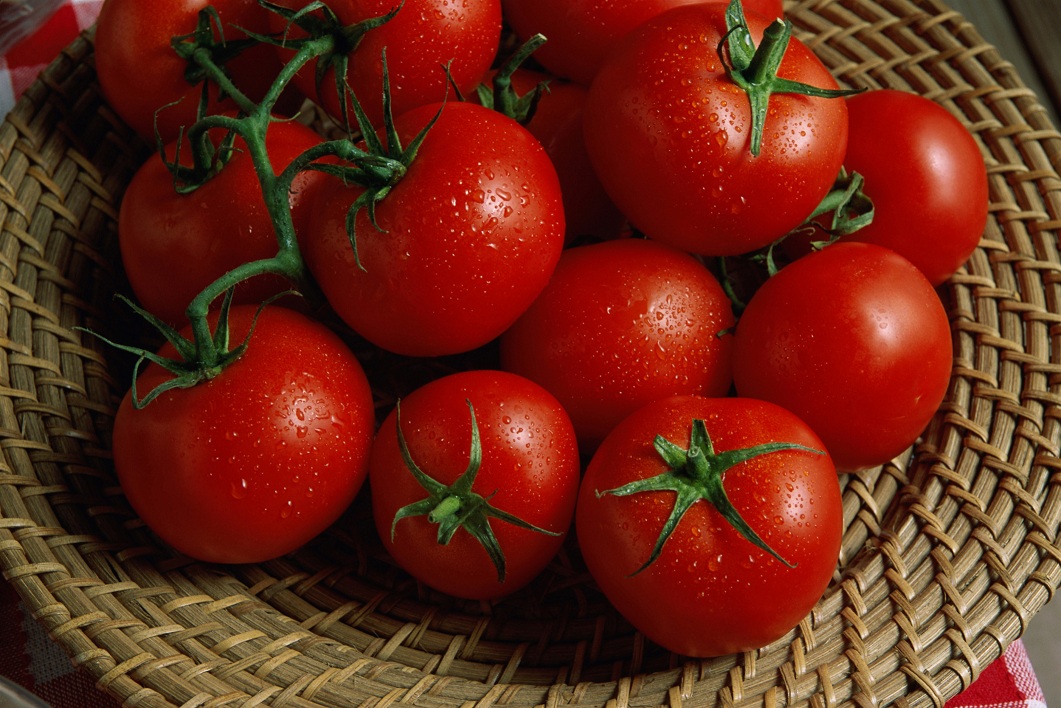Produce display cases in Russian grocery stores will soon be filled with an abundance of Azerbaijani tomatoes, after more than ten companies from the western Caspian country have been certified by authorities in Moscow to supply what is the region’s largest market and economy with organic vegetables.
Azerbaijan’s tomato industry is currently the most profitable non-oil industry in exports of what is the Caspian region’s fourth largest economy. Tomato exports increased by 60 percent and accounted for $128.8 million during the first nine months of 2017.
"Literally a week ago, 14 Azerbaijani companies received certification for the delivery of tomatoes to the Russian market," Russia’s Minister for Economic Development Maksim Oreshkin said in Baku on December 25.
“The capacity of these enterprises is more than 60,000 tons, so we expect large supplies to Russia.”
Oreshkin was in Azerbaijan on an official visit to attend the opening of the Russian Export Center’s official representation office in Baku, as well as hold meetings with Azerbaijan’s top economic officials.
Exports from Azerbaijan to Russia stood at $366 million throughout the first nine months of 2017, according to the Economic Reforms Promotion Center in Baku. Tomato deliveries to the Caspian’s largest market accounted for $128.8 million of that figure.
In 2016, Azerbaijan produced 517,000 tons of tomatoes and sent 100,000 tons of the red fruit to Russia, which ranked the country as the third largest tomato exporter to Russia after Morocco and China.
The decision to allow more Azerbaijani companies to enter the 144 million person market of Russia has come amidst Moscow’s embargoes on tomato imports from Turkey, which had been Russia’s main tomato supplier.
The closure of Russia’s market to fruit and vegetable deliveries from Turkey came on January 1, 2016, when bilateral relations turned sour with the downing of a Russian Su-24 bomber by the Turkish armed forces in November 2015. The incident pushed Moscow to retaliate by banning specific Turkish food imports, curbing business dealings and tourism-related services.
In October, the Kremlin announced it may resume imports from Turkey as of December 1.
Turkey is now allowed to send 60,000 tons per year to Russia, a number far short of the pre-embargo export total of 360,000 tons. Officials in Moscow say their decision to heavily limit the number of tomatoes coming in from Turkey is due to technological developments and heavy investments made by Russian farmers during the embargo period that allowed them to develop methods of growing tomatoes indoors during the cold months.







 Azerbaijan and Armenia started the process of demarcation of their border on Tuesday, with the installation of the first border markers based on ge...
Azerbaijan and Armenia started the process of demarcation of their border on Tuesday, with the installation of the first border markers based on ge...
 Armenian sappers commenced on Monday mine-clearance operations in the territories adjacent to the Saint Mary Church in village of Voskepar (Armenia...
Armenian sappers commenced on Monday mine-clearance operations in the territories adjacent to the Saint Mary Church in village of Voskepar (Armenia...
 Iran and Pakistan have signed eight cooperation documents in various fields, and agreed to strengthen ties to fight terrorism in the region.
Iran and Pakistan have signed eight cooperation documents in various fields, and agreed to strengthen ties to fight terrorism in the region.
 President Aliyev emphasized the critical role of the North-South Transport Corridor in fostering transport cooperation between Azerbaijan and Russi...
President Aliyev emphasized the critical role of the North-South Transport Corridor in fostering transport cooperation between Azerbaijan and Russi...



